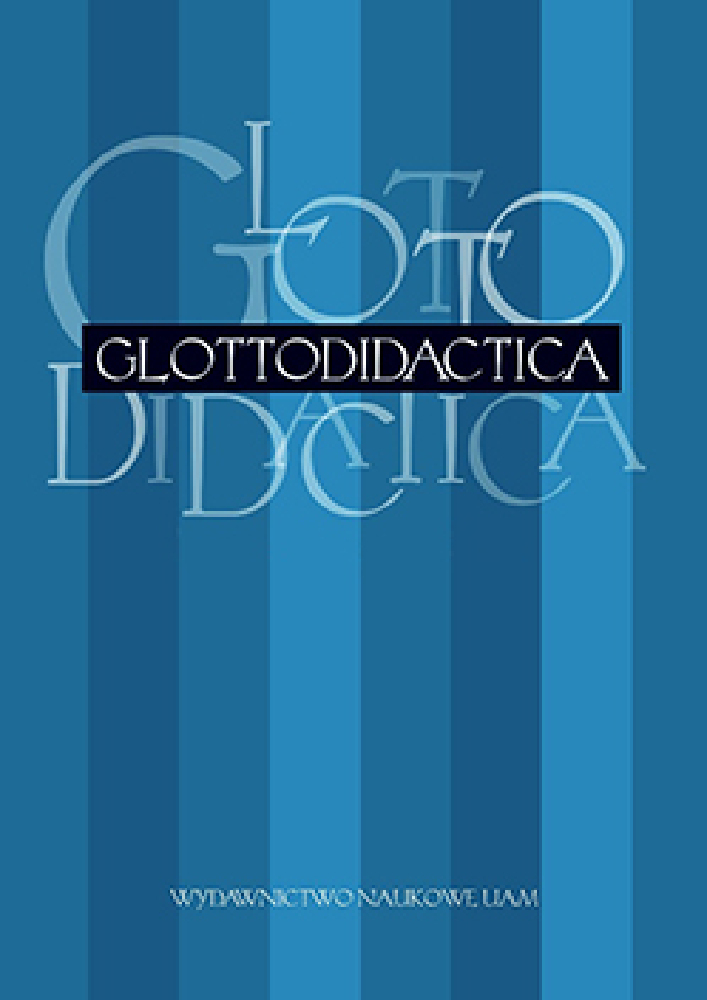Abstract
As in any human action, motivation is playing a key role in learning foreign languages. There are different types of motivation – one of them is curiosity. Curiosity is one of the strongest motivators, since it is based in the human character. Psychologists call curiosity the core of motivation. In my paper I will address a new learning technique, which consists of two didactic concepts at the same time: Learning by teaching and subject orientated learning. Subject orientated learning means the combination of a specific content to be learnt and a given person.
References
Duden. Wörterbuch. http://www.duden.de/rechtschreibung/Neugier (abgerufen am: 21.12.2015)
Gruber, E. 2006. Die Neugier in der systemischen Psychotherapie. In: Mehta, G., Zika, E. (Hrsg.). Systemische Grenzgänge. Wirksames und Wirkendes im Zwischenmenschlichen. Wien: Krammer. evagrber.at/.../die%20Neugier%20in%20der%20Psychotherapie.pdf (abgerufen am: 25. 12. 2015)
Gruber, E. et al. 2014. States of curiosity modulate hippocampus-dependent learning via the dopaminergic cicuit. http://www.eurekalert.org/pub_releases/2014-10/cp-hcc092514 (abgerufen am: 21. 12. 2015)
Loos, H. 2014. Model’ ličnostnoorientirovannogo podchoda v obučenii russkomu jazyku na načal’nom ėtape (Vortrag). Woche der russischen Sprache. Berlin: Russisches Haus der Wissenschaft und Kultur.
Roth, G. 2002. Warum sind Lehren und Lernen so schwierig? http://www.die-bonn.de/doks/roth0301.pdf (abgerufen am: 21. 12. 2015)
Wahrig G. 2000. Deutsches Wörterbuch. Gütersloh–München: Bertelsmann Lexikon Verlag.
License
Authors
Authors of texts accepted for publication in Glottodidactica are required to complete, sign and return to the Editorial team’s office the Agreement for granting a royalty-free license to works with a commitment to grant a CC sub-license.
Under the agreement, the authors of the texts published in Glottodidactica grant Adam Mickiewicz University in Poznań a non-exclusive, royalty-free license and authorize the use of Attribution-NoDerivatives 4.0 International (CC BY-ND 4.0) Creative Commons sub-license.
The authors retain the right to the free disposal of the work.
Users
Interested Internet users are entitled to use works that have been published in Glottodidactica since 2016, under the following conditions:
▪ attribution – obligation to provide, together with the distributed work, information about the authorship, title, source (link to the original work, DOI) and the license itself.
▪ no derivatives – the work must be preserved in its original form. Without the author's consent, it is not possible to distribute the modified work in the form of translations, publications, etc.
Copyrights are reserved for all texts published before 2016.
Miscellaneous
Adam Mickiewicz University in Poznań retains the property right as a whole (layout, graphic form, title, cover design, logo etc.).
Privacy statement
The names and email addresses published on this journal site will be used exclusively for the purposes declared by this journal and cannot be used for any other purpose or by any other party.




